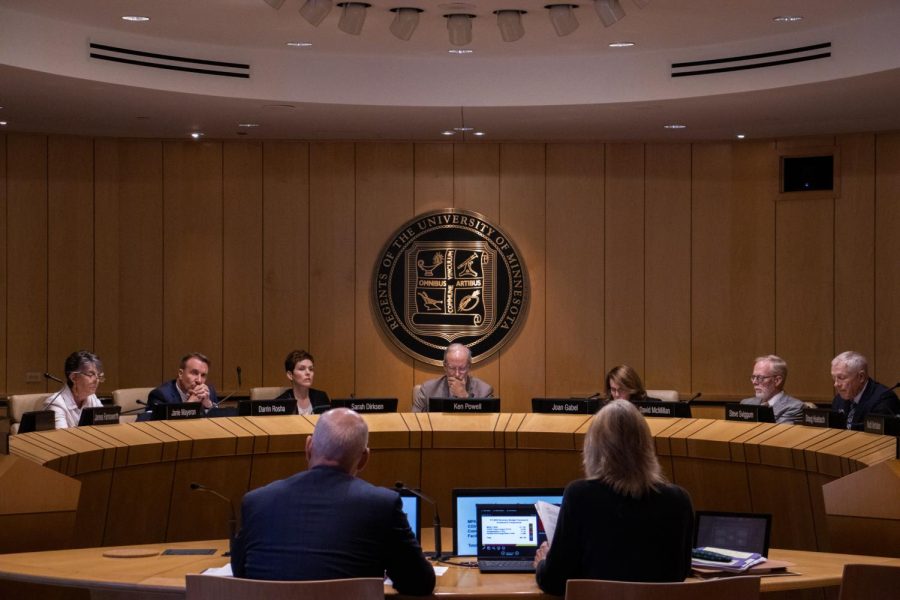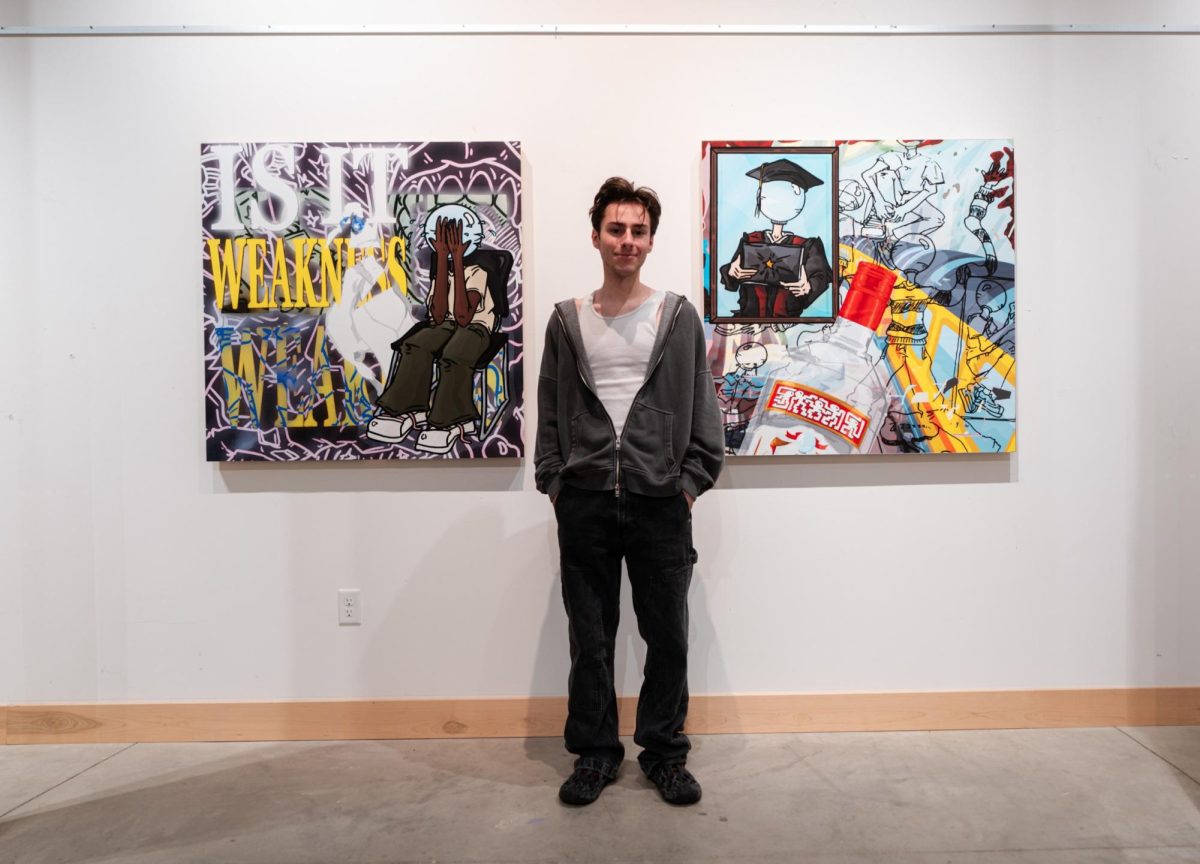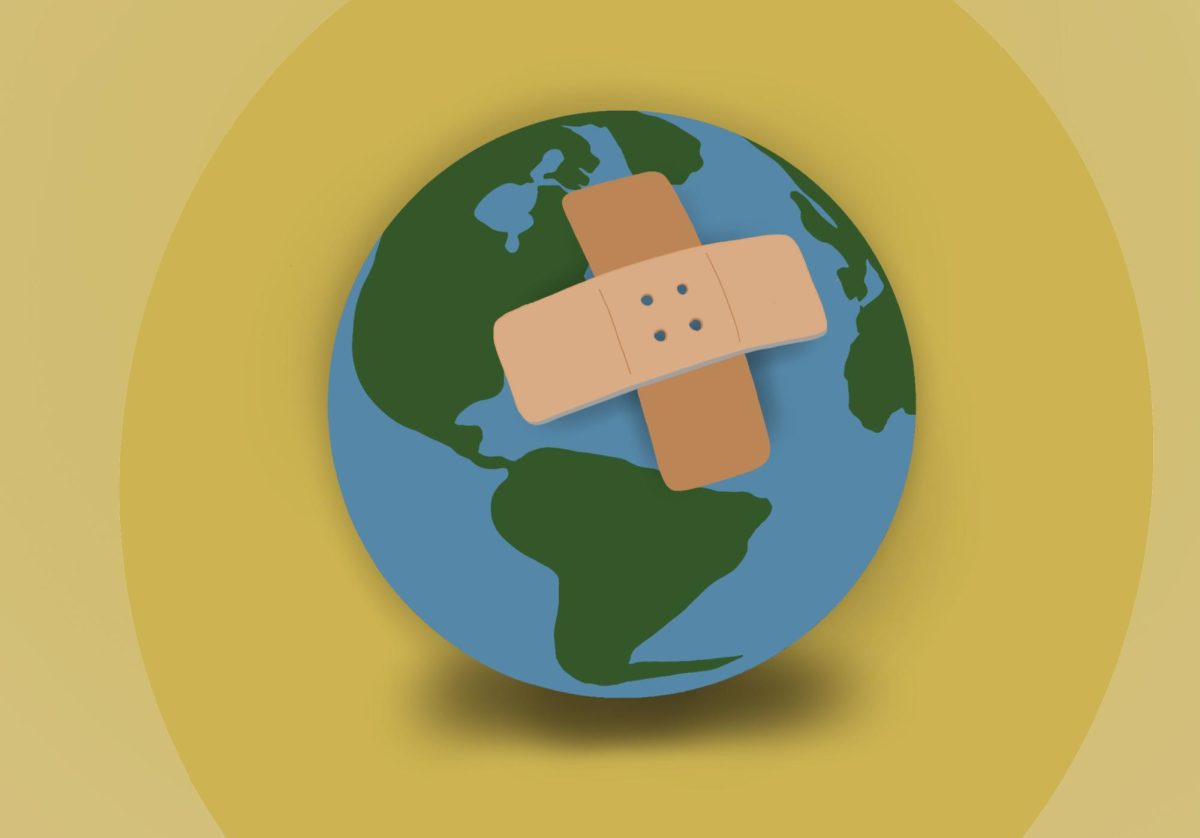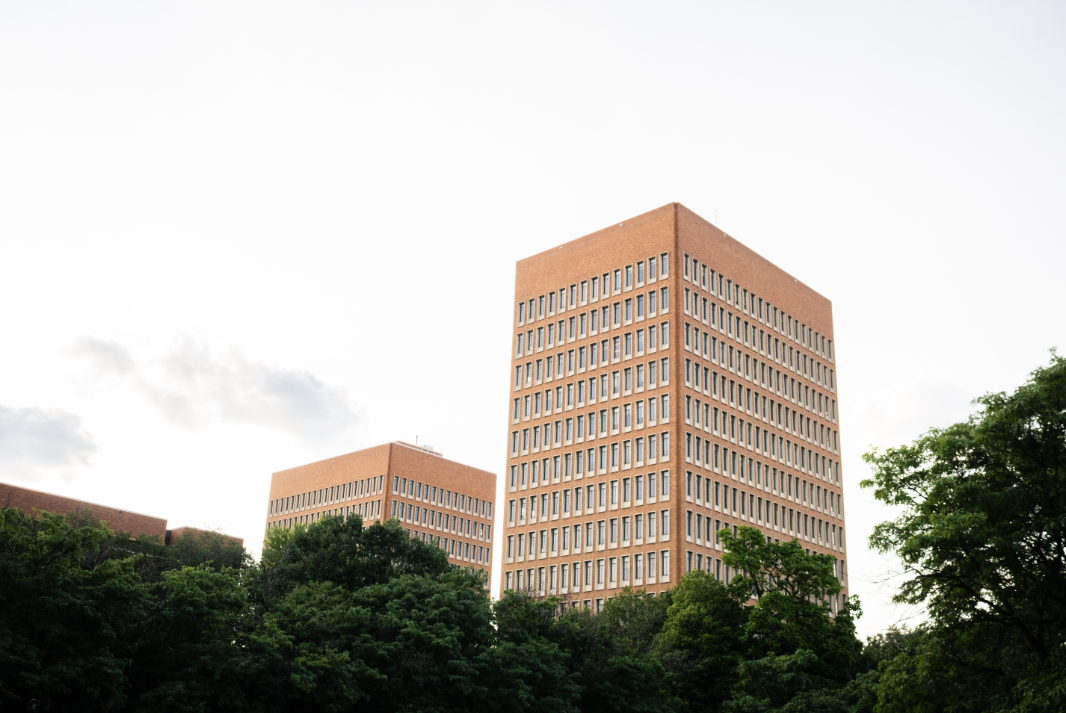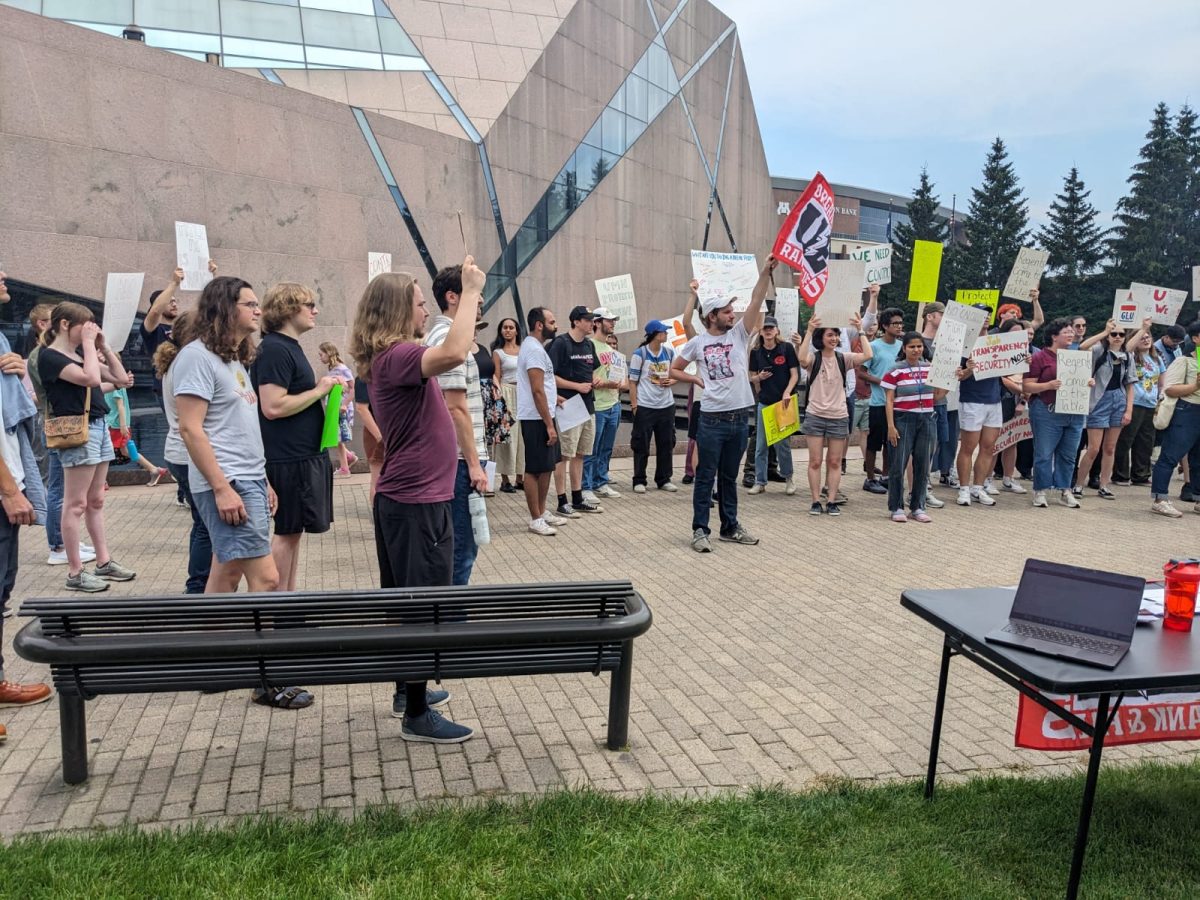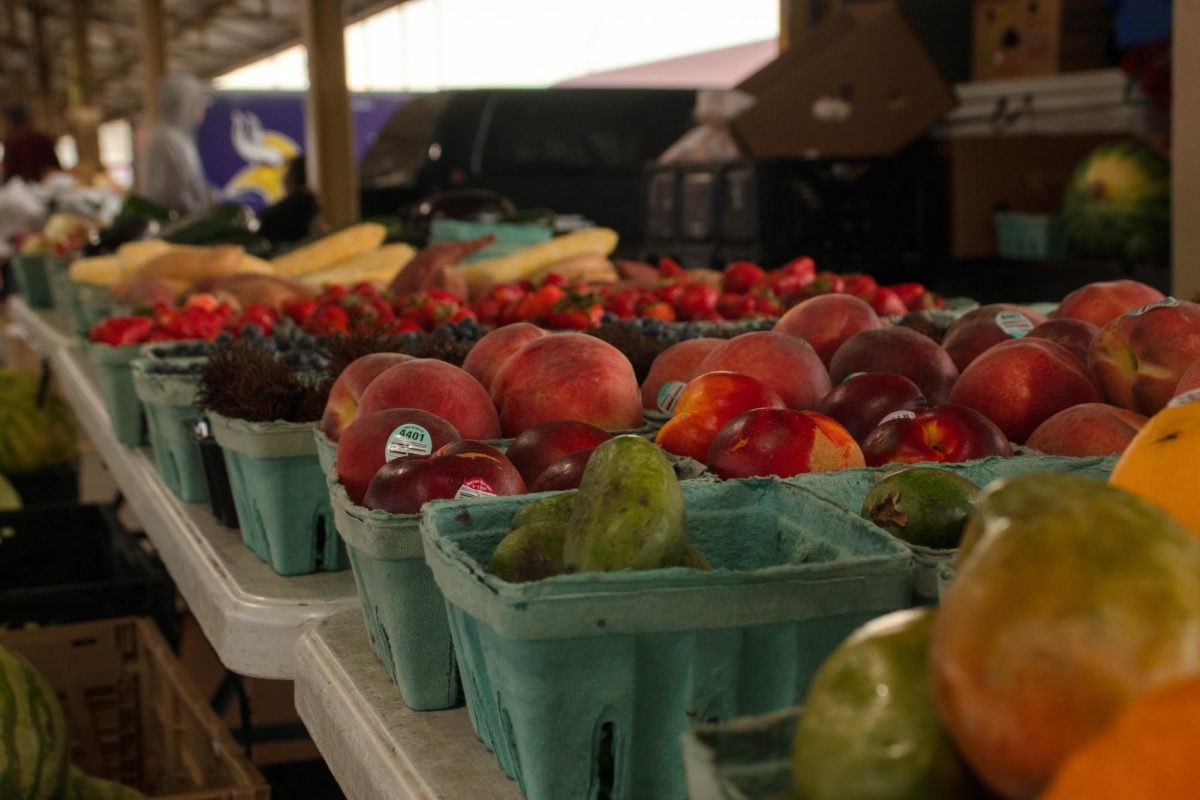The University of Minnesota Board of Regents approved a resolution affirming the return of Native American Mimbres objects and provided an update on campus safety at their meetings Thursday and Friday.
The board also introduced a new agricultural and sustainability initiative and approved new employee contracts, including a contract extension for athletics director Mark Coyle.
Repatriation of Mimbres objects
The board approved a resolution Friday to return the Mimbres objects at the Weisman Art Museum to their Native American tribes.
The University has begun consultations with 28 Native American tribes that are, or are likely to be, affiliated with the Mimbres objects. The Mimbres Collection includes Native American funerary objects like stone tools, arrowheads, beads and pottery that belonged to the Mimbres people who resided in the southwest U.S. beginning around 1000 AD.
Criteria to determine the objects’ cultural affiliation and intended location include geographical kinship, folkloric information, archeological information and several other categories of relevant information and expert opinion.
“The University is exhibiting the values of what it means to be a land-grant institution by authorizing the repatriation of the Mimbres objects to their rightful home,” board chair Kendall Powell said at the meeting. “We express our regret that it was not done sooner.”
Between 1928 and 1931, the University and the Minneapolis Institute of Art excavated Native American materials in New Mexico, including human remains and material objects of the Mimbres people. The University then transferred some of these remains to other U.S. universities or museums.
In 1989, the University transferred the human remains to the Minnesota Indian Affairs Council, and in 1992, the University’s Department of Anthropology transferred the remaining objects to the Weisman Art Museum.
Public safety updates
Senior leaders also discussed campus safety at the meeting, saying the University will meet with senior leaders from each campus to form campus safety plans.They expect to have plans drafted by the summer, according to Myron Frans, University senior vice president for finance and operations.
The individual plans will then be consolidated into one systemwide campus safety plan. The University is also requesting $100 million from the legislature for safety and security, Frans said at the Friday meeting.
Members of the MSafe implementation team discussed how they plan to implement 32 of the 64 recommendations expert Cedric Alexander provided in January 2021 to improve campus safety. The priorities fall under over-communicating with the community, UMPD training and distinguishing UMPD’s role.
“I really lean in and agree with the value of over-communication,” regent James Farnsworth said at the meeting.
One priority is consultation with the community about a vision for public safety. This includes the size and structure of UMPD and particular needs of BIPOC, immigrant, LGBTQ and disabled people.
The team is also recommending UMPD officers avoid responding to off-campus situations, like police protests. The committee also recommended the University demilitarize UMPD by providing officers with less lethal and non-military weapons, vehicles and other resources.
“We all know how we got here. It is unfortunate that at the time we’re coming back to this conversation, we’re kind of in the same place with the murder of Amir Locke, which highlights how important the work of this committee is,” regent Mike Kenyanya said at the meeting.
University President Joan Gabel said the University has taken some action to improve campus safety such as providing UMPD officers with body cameras, installing additional blue light kiosks and hiring a social worker and community liaison.
“I will stress this is an update, this is a work in progress,” Powell said. “This is extremely difficult work.”
New agricultural research initiative
Brian Buhr, dean of the College of Food, Agriculture and Natural Resources, announced a new initiative called the Future of Advanced Agriculture Research in Minnesota (FAARM) Thursday. The vision for this initiative is to create an animal-agricultural teaching and research complex in Mower county Minnesota.
The initiative will develop new techniques and partnerships for sustainable food production and natural resources. The complex in Mower county will study cattle, swine and poultry farming, crops, the intersection of human and animal health and the animals’ impact on soil health and water quality.
“This clearly sends a signal to Minnesota about how we sustain the competitiveness of Minnesota’s agricultural sector and businesses and communities across Greater Minnesota,” Buhr said at the meeting.
Buhr said the University has been planning this initiative for about six years. FAARM is a partnership with both the Hormel Foundation, a nonprofit that supports education and research in the Mower County community, and Riverland Community College in Austin, Minn.
The initiative is projected to open in five years, with new building development taking place over that period. The total estimated cost is about $220 million, with the Hormel Foundation pledging an additional $60 million. The University is requesting $60 million from the state capital to fund the initiative.
Another goal for the partnership is to expand agricultural talent in rural communities and provide a pipeline of potential University students from the Austin area.
“To me, it’s not important where it’s located, just that it’s located in the state. That research is so important,” regent Douglas Huebsch said at the meeting. “It takes agriculture and animal agriculture into the future.”
Employment contracts
The board approved Thursday three collective bargaining agreements for clerical workers belonging to the American Federation of State, County and Municipal Employees (AFSCME) unions. Union members and the University began negotiations for these agreements in June 2021.
The benefits in the agreements last for one year and include a 1.5% salary increase. The agreements also include two additional days of paid time off for the death of an immediate family member if an employee has to travel long distance. Employees are currently offered three days of paid time off, according to docket materials.
Union workers previously asked additional paid time off for bereavement and for an across-the-board increase of 75 cents an hour. Union workers previously said a 1.5% increase is not enough to keep up with inflation and increasing costs of living.
The board also extended the contract of Mark Coyle, the director of intercollegiate athletics, by two years, so it now runs through June 2028. The updated contract will also include a base salary of $975,000 with annual salary increases ranging from 2.5% to 3%.
Additionally, Coyle will be eligible for annual longevity bonuses of $100,000 to $250,000. He will also be eligible for supplemental retirement benefits of $150,000 to $185,000.










